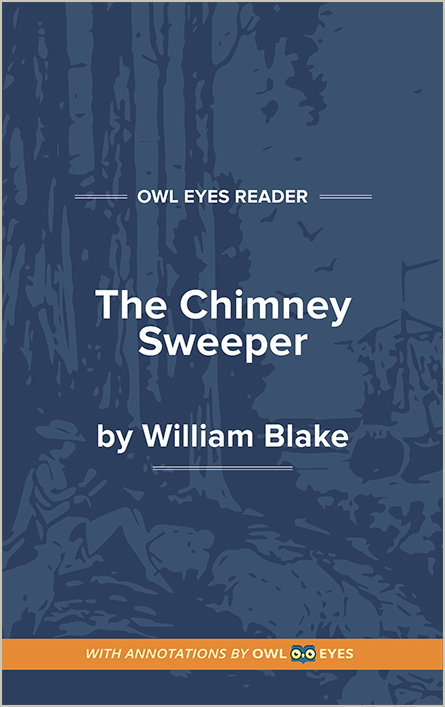Analysis Pages
Themes in The Chimney Sweeper
The Inevitable Loss of Innocence: “The Chimney Sweeper” is the first poem in Songs of Innocence and Experience in which Blake portrays the corrupting nature of experience. Throughout the poem, Blake describes the chimney soot spoiling the pure, white-haired of the boys—Tom, in particular. This soot represents the corrupting nature of child labor. The chimney sweepers, once innocent and joyous children, are now tainted with experience.
The Harmful Side of Redemption: The angel promises redemption in the eyes of God to the chimney sweepers. However, there is a price to this redemption. The angel states that if each child is a “good boy,” then he will want for nothing in the afterlife. For these children, who work as chimney sweepers under extremely inhumane conditions, being a “good boy” means following the rules set out for them. It means being obedient and accepting this terrible fate. Blake is pushing back on the doctrine of obedience, questioning whether or not obedience is a fair price for redemption. Blake also questions the practice of hoping for a paradisiacal afterlife and thereby accepting a miserable earthly existence.
Themes Examples in The Chimney Sweeper:
The Chimney Sweeper
🔒"if he'd be a good boy, He'd have God for his father, & never want joy...." See in text (The Chimney Sweeper)
"You know that the soot cannot spoil your white hair.'..." See in text (The Chimney Sweeper)

